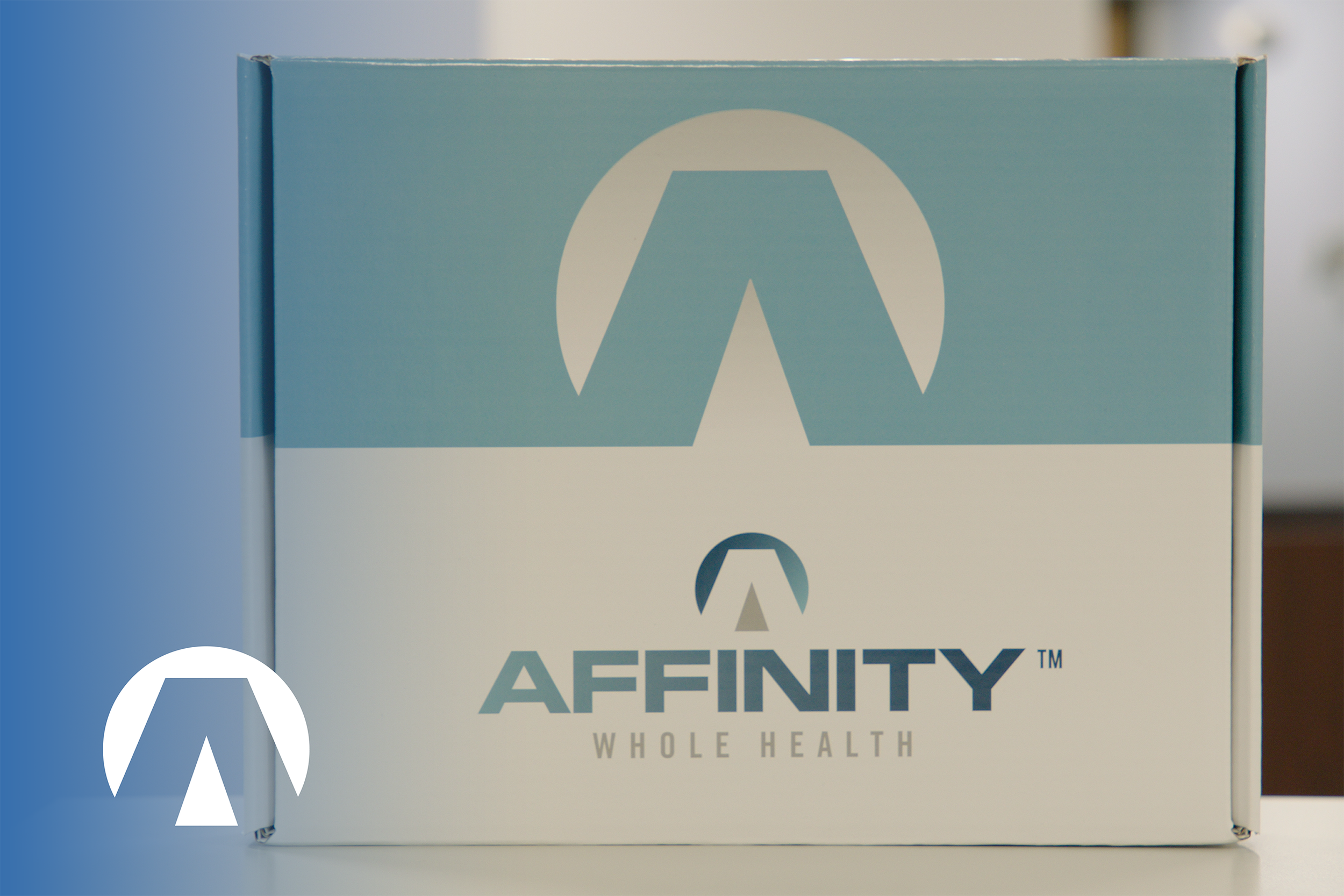What to Expect When Starting TRT: Week by Week
Starting Testosterone therapy (TTh), sometimes referred to as Testosterone Replacement Therapy (TRT), can feel like a big decision, but it’s also a life-changing one. For many men, it's the first step toward restoring energy, libido, focus, and overall quality of life.
If you're considering TTh, or you've just started your first program, you're probably wondering: When will I feel better? What should I expect, and when? Everybody is different, but at Affinity Whole Health, we’ve guided thousands of patients through their week-by-week journey. Here’s what we typically see.
Week 1: Getting Started
The first week of Testosterone Therapy is all about beginning your journey. Most patients start with injectable testosterone. Although testosterone levels begin rising almost immediately after your first injection, you likely won’t feel major changes just yet. Your Patient Care Coordinator (PCC) is with you every step of the journey.
Your androgen receptors, the parts of your cells found throughout the entire body that respond to testosterone, need time to become fully saturated. These empty receptors are one of the main reasons you're feeling symptoms like low energy, low libido, or brain fog in the first place. Once testosterone starts binding to those receptors, the changes begin.
Weeks 2–3: Early Effects Begin
This is often when patients start noticing small improvements. These vary depending on the individual, but early signs of success might include:
More stable energy throughout the day
Better sleep patterns
Slightly improved mood or focus
Early changes in libido or erectile function
That said, everybody responds differently. Some patients see faster changes, especially in sexual function and sleep, while others experience a slower ramp-up. If nothing is happening yet, don’t worry, your receptors are still adjusting.
Weeks 4–6: Noticeable Improvements
Most patients begin to recognize meaningful change during this phase. You may feel like you’re gaining real momentum, especially in the following areas:
Improved sleep quality and feeling more rested
Stronger libido and sexual performance
More mental clarity and better mood regulation
Increased energy that lasts throughout the day
These weeks are often when our patients say things like, “I didn’t realize how bad I felt before until now.” Your daily quality of life may improve dramatically—but you’re still just getting started.
Weeks 7–12: Body Composition, Strength, and Fine-Tuning
From weeks 7 to 12, testosterone levels have typically stabilized. At this point, many patients feel like a better version of themselves—especially if they’ve been putting in the work at the gym and kitchen.
Here’s what to expect:
Increased lean muscle mass and better recovery from workouts
Decreased body fat (especially if you're training consistently)
Sharper focus, reduced irritability, and better motivation
Long-term mood stabilization and emotional control
This is also the time when we start optimizing your protocol based on labs, how you're feeling, and your goals. If you’re not noticing results by this point, we’ll likely bring you in for additional blood work to ensure dosing, free testosterone, and estrogen are in the right range.
What If You’re Not Feeling Better?
If you're 8–10 weeks in and not noticing any improvement, it's time to investigate. We may have you meet with your medical Provider again or bring you in for updated labs and review things like:
Free testosterone levels (most important marker for how TRT is working)
Estrogen levels (important to balance—not too high or too low)
Symptom scores to track energy, libido, mood, and mental clarity
From there, we may adjust your dosage or frequency—or explore other factors like stress, sleep, and exercise. Everyone’s receptors and metabolism are different, which is why TRT is never one-size-fits-all and it’s important to have a trusted partner like your Patient Care Coordinator.
Lab Work Timing and Monitoring
We time your lab work for the most accurate readings. For injections, that means testing in between testosterone injections.
Here’s our general lab monitoring schedule:
Baseline labs before starting TRT
Follow-up labs at 12-16 weeks
Ongoing labs every 4–6 months
We track total testosterone, free testosterone, estradiol (estrogen), red blood cell count, prostate specific antigen level, and more. Learn more about what we test here.
Personalized Care Makes All the Difference
The common theme across all TRT patients? Personalization is everything. We don’t use cookie-cutter protocols. Every dose, delivery method, and timeline is tailored to your body, your labs, and your goals with a PCC to answer your questions and guide your care. That’s what makes Affinity Whole Health different.
Frequently Asked Questions
-
Everyone responds differently. If you’re not experiencing benefits after 8–10 weeks, we’ll bring you in for updated labs to review your free testosterone, estrogen, and other markers. From there, your medical provider may adjust your dose or address other factors affecting your progress. Remember - the harder you work towards a healthier lifestyle with exercise and diet, the more you will get out of your program.
-
We check your labs at baseline (before starting therapy), again at 12-16 weeks, and then every 4–6 months depending on how you’re feeling and your personalized program. Lab timing is important for the most accurate reading.
-
Testosterone can decline naturally with age, but other factors include stress, poor sleep, obesity, chronic illness, and certain medications. Sometimes, no obvious cause is found, which is why testing is important.
-
You can stop taking Testosterone Therapy at any time, but you will return to previous testosterone levels and your symptoms will return. We’ve seen patients feel relief from their symptoms on Testosterone Therapy and stop treatment only to return in a few months when the original symptoms return.
-
Testosterone Therapy supports improved body composition, but results are significantly better with effort. Men who follow a consistent strength training routine and eat a balanced diet see faster, more dramatic improvements in muscle gain and fat loss.
-
Many patients begin noticing improvements in energy, mood, and libido within a few weeks. Full effects, especially related to muscle composition or cognitive clarity, often develop after 8-12 weeks of consistent treatment.

